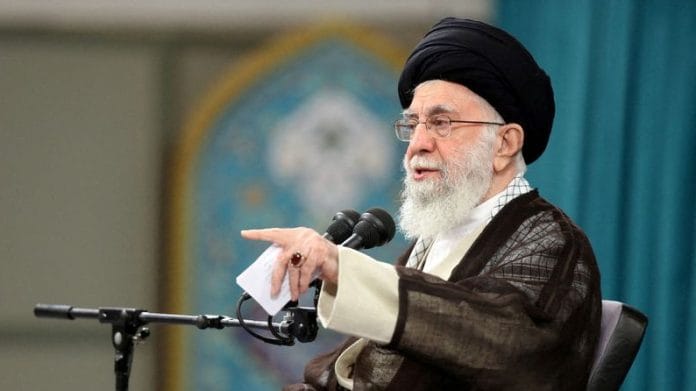Ayatollah Khamenei’s recent tweet grouping Indian Muslims with Gazans and Rohingyas, which he posted the day after Milad-un-Nabi, received much backlash from Indians. What is particularly interesting is that he spoke on the same day when he celebrated Islamic Unity Week, discussing the concept of the Islamic ummah.
I, too, can criticise the tweet on many fronts, from Iran’s hypocrisy on human rights to the broader issues surrounding the idea of ummah and its definition of a “true Muslim”. But what truly captured my attention was the motivation behind making such a statement, especially given Iran’s strong strategic ties with India. It’s not difficult to read between the lines and see the Supreme Leader’s desire to position himself as the ‘true leader’ of the Muslim world.
This is not the first time Khamenei has spoken about Indian Muslims. Previously too, he has tweeted about the 2020 Delhi riots and the Kashmir issue, expressing concern for the Muslim community in India. While there are issues to deal with in India, Khamenei seems to weaponise them for his own political agenda.
As ridiculous as the comparison between Gazans, Rohingyas, and Indian Muslims sounds, Ayatollah Khamenei’s inflammatory tweet ultimately trivialises the suffering of the first two communities. As an Indian Pasmanda Muslim woman who has spent her entire life in a stable nation, benefiting from a pluralistic society, sharing culture with fellow Indians, and living under a democratic and republican system, I feel a deep sense of gratitude when I reflect on the situation in Palestine and Myanmar. Being part of this nation makes me appreciate the relative peace and opportunities we enjoy. Yes, we have our own issues and fault lines. And to address them, we have our support system and well-functioning democratic institutions, voices within the community and from outside that fight for justice and the rights of Muslims and other Indians as well. Indian Muslims have long been integral to the nation, contributing to its rich diversity and pluralism.
Now compare this with the countries mentioned in Khamenei’s tweet — both Myanmar and Palestine are undergoing conflict, oppression, and displacement. On the contrary, the situation of Indian Muslims is vastly different. By grouping them together, Khamenei is not only misrepresenting the realities on the ground but also trivialising the genuine suffering and hardships faced by those in Gaza and Myanmar. Such a comparison diminishes the gravity of their pain and struggles.
Also read: Why do Indian Muslims lack an intellectual class? For them, it’s politics first
A problematic idea
The concept of ummah has already failed in today’s world, having been superseded by national identities. Khamenei uses it in conjunction with human rights to unite the Muslims of the world. Should Muslims be concerned about the welfare of their coreligionists around the world? Of course. But one shouldn’t stop there. The humanist ideals of modernity have a wider circle of moral concern. A communal basis for human rights can lead to ever-widening divisions.
He ties the identity of a true Muslim to having such a narrow focus, a very problematic idea. It creates a society where individuals live under the pressure to constantly prove their ‘Muslimness’ through political allegiance to their leader or face the threat of excommunication. Dissenting voices can’t survive in such a hostile atmosphere, freezing the progress of any such community.
Even if we ignore these concerns, the Supreme Leader of Iran expressing such opinions on Muslims comes across as a farce. The accounts of the treatment of the women in the country are telling in themselves. This is a country where women are forced to cover themselves with a hijab and authorities no longer believe in the personal choice and agency of half its population. The leadership of such a country must look in their own backyard first before making inflammatory statements about the internal affairs of others.
There is no doubt that Khamenei can score political points with certain Muslim communities in the short term through such misleading tweets, a game he is not a newcomer to nor one that we can expect him to refrain from in the future. What will be the long-term implications of such a strategy? That remains to be seen. I doubt that the strategical alliance between India and Iran would be impacted by such stunts. What is undoubtable is that these ideas invoked by Khamenei are problematic and should be countered for a better, more peaceful world.
Amana Begam Ansari is a columnist and TV news panelist. She runs a weekly YouTube show called ‘India This Week by Amana and Khalid’. She tweets @Amana_Ansari. Views are personal.
(Edited by Humra Laeeq)







Real problem with him is that India is not taking any stand against Israel but he should ask GCC countries first ..no one has taken any stand against Israel…only nation who has taken any stand against Israel is South Africa which is not a Islamic nation